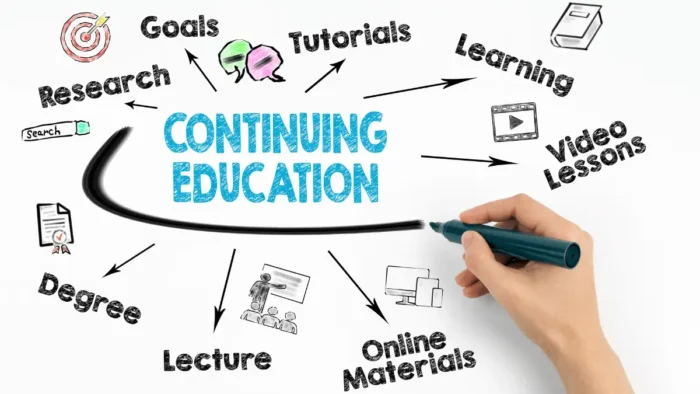The hospitality industry is undergoing significant changes as it responds to evolving guest expectations. With advances in technology, amenities, and availability of information — guests globally are more informed than ever on what they can expect from their stay at any given hotel or resort. As trends shift and evolve, hospitality providers must ensure that they are up-to-date with the latest developments so that their services meet the demands and wishes of their guests.
Here, we’ll discuss some top trends in the hospitality industry today that provide insights into how hotels and resorts must adapt to remain relevant and continue providing exceptional experiences for vacationers worldwide.
Use Alternatives to Airbnb
Airbnb has changed how travelers book their accommodations, offering unique and personalized experiences that traditional hotels may be unable to match. To compete with this trend, hotels are adopting similar alternative lodging options such as boutique properties, bed-and-breakfast inns, and home-sharing services. Those looking for other competitors of Airbnb should look into FlipKey, VRBO, and HomeAway as some of the biggest names in the industry. By expanding their offerings, hotels and resorts can cater to a broader range of travelers and provide more diverse experiences.
Leverage Social Media
Social media platforms have become integral to the hospitality industry, both as a marketing tool and a medium to engage with guests. Travelers increasingly rely on social media for travel inspiration, reviews, and booking options.
As a response, savvy hospitality providers leverage these platforms to showcase their services, build their brand identity, and foster direct communication with guests. With its visually-driven content, Instagram is particularly effective for showcasing stunning property aesthetics. In contrast, Facebook’s review system enables potential guests to gain insight into previous guests’ experiences.
Enhance the Efficiency of Check-In Processes
The check-in process is one of the most significant causes of hotel guest dissatisfaction. With travelers seeking quick and seamless experiences, traditional manual check-ins are becoming outdated. Hotels must adapt to this trend by implementing technology-driven solutions such as mobile check-in and keyless entry systems.
These innovations enable guests to check in remotely, bypass long queues, and have a more personalized experience. When streamlining the check-in process, hotels can enhance guest satisfaction and reduce waiting time, positively impacting their overall stay.
Adapt to Changing Guest Habits
The evolving behavioral patterns of the modern traveler necessitate changes in the hospitality industry. Among these changes, the rise of eco-consciousness stands out. Today’s travelers are increasingly mindful of their environmental impact and seek accommodations aligning with their sustainable values.
Hotels and resorts implementing green initiatives such as energy-efficient utilities, waste management systems, and locally sourced food options will likely attract these environmentally conscious guests. This shift towards sustainability is not just a trend but a long-term perspective that demands the commitment of hospitality providers.

Use Innovative Strategies
While traditional marketing methods like print and television advertisements, billboards, and flyers still hold value, innovative strategies can distinguish your brand and ensure it stands out in an overcrowded market. These could include collaborations with local businesses or influencers, hosting events and workshops, offering unique packages and experiences, or investing in interactive digital platforms.
Innovative strategies help hotels and resorts attract new customers while also keeping current guests interested in returning. Stay ahead of the curve and embrace change proactively, and your property will be seen as a leader in the industry.
Explore Modern Housekeeping Practices
Modern housekeeping practices in the hospitality industry are shifting towards automated and eco-friendly solutions. New technologies like robotic vacuums and AI-powered devices are being introduced to ensure efficient cleaning and maintenance.
Some hotels are even exploring using drones for window cleaning in high-rise buildings. Additionally, there is a growing emphasis on using eco-friendly cleaning products that are non-toxic and biodegradable, reducing the environmental impact of hotel operations. The focus on sustainability also extends to laundry practices, with many hotels adopting energy-efficient washers and dryers and using organic or recycled textiles. These modern practices enhance operational efficiency and cater to the increasing demand for sustainable and responsible tourism.
Make Use of Personalization Techniques
Personalization in hospitality is no longer a luxury but a requirement to meet the expectations of modern guests. It involves tailoring the guest experience based on their preferences and behavior. With the help of advanced technologies like AI, machine learning, and data analytics, hotels can now gain deeper insights into guest behavior and preferences to provide custom-tailored experiences. This could range from preferred room temperature and favorite meals to arranging experiences around their hobbies or interests.
Personalized emails, in-app notifications, or text messages can also provide guests with relevant information and offers. Such personalization will make guests feel valued and recognized, and they are more likely to return and recommend the hotel to their network.
Utilize Data Analytics
Harnessing the power of data analytics is paramount in the modern hospitality industry. These tools allow hoteliers to derive invaluable insights from a plethora of guest data, including booking patterns, preferences, behaviors, and feedback. With this wealth of information, hotels can improve guest experiences, optimize revenue management, enhance marketing strategies, and make informed operational decisions.
By analyzing peak booking times and seasonal trends, hotels can adjust their pricing strategies to maximize occupancy and revenue. Data analytics can also pinpoint areas that need improvement from guest feedback, leading to enhanced guest satisfaction. As data analytics becomes more sophisticated, its usage in the hospitality industry is expected to increase, providing more opportunities for hotels to improve their offerings and stay competitive.
Conclusion
In today’s rapidly evolving hospitality landscape, you must stay ahead of the curve to meet and exceed guest expectations. From leveraging social media, adopting alternative accommodation models, implementing eco-friendly practices, and personalizing guest experiences, hotels, and resorts are called upon to innovate and adapt. Equally critical is the use of data analytics to gain actionable insights and improve operational efficiency.
As we navigate these exciting transformations, companies prioritizing guest satisfaction, sustainability, and efficiency will be poised to thrive in this new era of hospitality. The future promises remarkable opportunities for those ready to embrace change and strive for excellence in meeting the diverse needs of global travelers.





